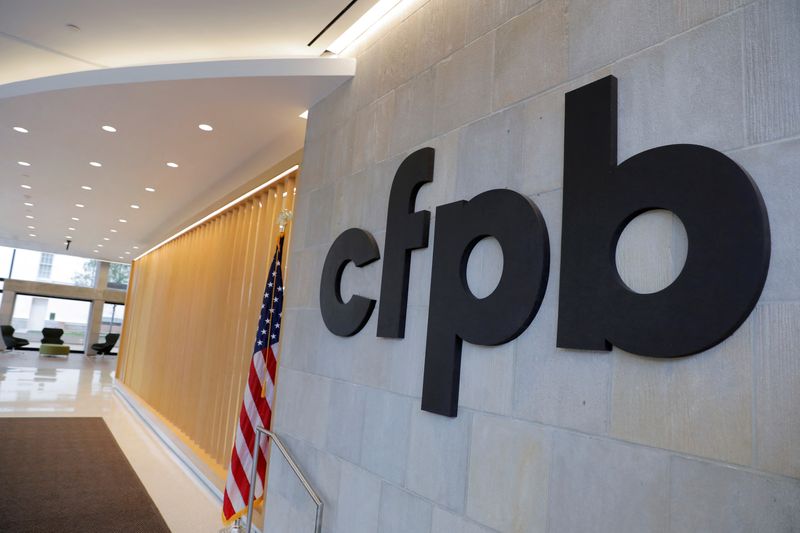
© Reuters. FILE PHOTO: Signage is seen at the Consumer Financial Protection Bureau (CFPB) headquarters in Washington, D.C., U.S., May 14, 2021. REUTERS/Andrew Kelly/File Photo
By Pete Schroeder and Chris Prentice
WASHINGTON (Reuters) -A U.S. consumer watchdog on Tuesday sued TransUnion (NYSE:) and one of its top former executives, charging the credit reporting agency tricked consumers into making recurring payments after being fined in 2017 for similar activity.
The lawsuit, filed by the Consumer Financial Protection Bureau in a U.S. District Court in Illinois, accuses John Danaher (NYSE:), who headed one of the company’s subsidiaries, of failing to ensure the company stopped the activity.
The suit seeks monetary relief for consumers, injunctive relief and fines.
A TransUnion spokesperson did not immediately respond to a request for comment. Danaher left TransUnion in 2021, according to the CFPB complaint. He did not immediately respond to a request for comment.
“TransUnion is an out-of-control repeat offender that believes it is above the law,” CFPB Director Rohit Chopra said in a statement. “I am concerned that TransUnion’s leadership is either unwilling or incapable of operating its businesses lawfully.”
The lawsuit represents the bureau’s more aggressive posture under President Joe Biden’s administration. Chopra said last month the CFPB was looking at “structural remedies” to hold big companies more accountable for repeat offenses.]
Tackling corporate recidivism has emerged as a key priority under Biden, who entered the White House nearly 15 months ago, with the Justice Department last year rolling out a series of policy changes aimed at better deterring repeat misconduct.
In its complaint, the CFPB said the company failed to address shortcomings identified in a 2017 enforcement action under which TransUnion paid $16.9 million to settle charges it deceptively marketed its products, tricking customers into recurring-payment products and making canceling them difficult.
The CFPB said Danaher, who headed TransUnion Interactive, one of the company’s subsidiaries, sought to delay compliance with the 2017 order to try to boost revenue.
For example, he told the company to stop requiring customers to check a box to confirm enrollment in a paid product, which had been required by the order, the CFPB said.


Be the first to comment